We're back after a hiatus with our next set of interviews with CS Ops leaders!
If you're new here, some context: Customer Success Operations (CS Ops) is a relatively new function in contemporary organizations. CSMs or even CXOs cover this function at early-stage startups. Still, as the company scales and the CS teams mature, having a separate operations role or team will be essential and prevalent.
At Rocketlane, we want to actively help organizations build this function by interviewing folks in CS Ops and bringing out their stories of successful transitions into CS Ops.
In this interview, Sonam Dabholkar, Director of Customer Success Operations at Gong, talks about her transition to CS Ops, the experience and skills that helped her make the transition, advice for those early in their CS Ops career, changes she hopes to witness in the field, and more.
Let's dive right in!
. . .
You’re probably familiar with the Japanese concept of ikigai. For the uninitiated, it’s the state of well-being that arises out of being engaged in activities that bring a sense of purpose and fulfillment. In short, it’s your reason to get out of bed in the morning.
During my conversation with Sonam on her CS Ops journey, there were multiple moments when I found myself thinking about how she seemed to have found her ikigai. Read on, and you may find yours too!
How did you realize that a career in CS Ops was for you?
I started my career in change management consulting. Customer Success wasn’t a big industry at the time, and I’d never even heard of it. I was part of a Big Four consulting firm for several years, and when thinking about my next step, I wanted to work at a startup and build something from scratch — to have a bigger impact at a much smaller organization. So I joined Gainsight in 2014 when they were really small, with around 100 employees. That was my first pure Customer Success role – I was responsible for building and growing their first-ever SMB Customer Success team.
Three years into the role, I started thinking about the next step in my career:
What energizes me? What have I liked and disliked about this role?
I had to take a step back and truly reflect on my experience. I realized that a lot of what really energized me about the role fell into the Strategy & Operations bucket. However, a lot of my days weren’t filled with those activities - they were instead filled predominantly with customer calls. And actually, in my evenings and weekends, I was building out dashboards and reports for my team, designing and optimizing our processes, and being proactive about our customer strategy.
It took me a few months to finally arrive at a light bulb moment: CS Ops was the role I wanted to do full-time!
That realization led me to my first official CS Ops role at Autodesk, where I joined as a Manager of CS Ops. It was a really interesting time to join Autodesk as they had recently completed a business model transformation to move from a perpetual license business model to a subscription-based model. They were looking for people with CS experience to add to their DNA.
The draw for me was the prospect of doing Ops at an established company that was continuing to mature its CS org and best practices and, in that way, almost operated like a start-up. This role was also a hard pivot into Operations for me, from managing a heavily customer-facing team at a small company to moving to an internal operations role at a significantly larger company.
From Autodesk, I moved on to Gong. I’ve now been with Gong for over three years. I was the first person in a CS Ops role at Gong – I was hired to build and scale the CS Ops function here. When I first joined Gong, we were around 200 employees, and now we’re over 1200. And from starting as a team of one, I now have a team of 11! This is the first time I’ve started from scratch and built a CS Ops team at a company that’s gone through hypergrowth – it’s been an unbelievable experience so far!
What did you learn from your experience in CS Ops at Autodesk?
Autodesk is a massive global company. My primary area of responsibility was operations for their Enterprise Customer Success organization, a team of 700+ people who supported their largest and most complex customers across 4 major geographies. As I said, although Autodesk is a very established company, the CS function was still fairly new at the time; many tools, processes, and workflows had yet to be built and effectively scaled across the organization. This was really exciting to me and provided tons of opportunities across the customer journey for my team and me to make an impact.
My experience in change management consulting from early on in my career also ended up being immensely useful at Autodesk. Driving operational changes internally within such a large, global organization – and also taking into account all the regional and cultural differences – was a massive change management effort. Every other month I found myself flying to one of our international office locations to meet with CSMs or other Ops team members in-person to drive initiatives forward. I learned a ton about how to work effectively in operations at a global scale, and it was an invaluable experience.
How is CS Ops at Gong different from what it was at Autodesk?
The most obvious difference would be the type of company and the scale. Autodesk has been around for decades. They had over 10,000 employees across the globe when I joined and are a public company. Gong was a startup when I joined and had recently raised their Series B funding. It felt very similar to when I first joined Gainsight —a smaller company where I had a lot of building to do. Also, the Post-Sales team I supported was concentrated in the US. So, the environments themselves were very different.
From a CS Ops perspective, Gong did not have a CS Ops team at all when I joined. We were at that inflection point that many companies find themselves at when they first start thinking about hiring for a CS Ops role– we had a 20-25 person CSM team, our processes needed to scale. We were starting to segment the team, and design more proactive customer journeys. The CSM team needed someone in CS Ops to connect the dots across the organization and build tools, strategies, and programs to drive internal efficiency and customer value.
On the other hand, Autodesk had much of the operational structure and people-resourcing in place when I joined. Really, the appeal of joining Gong was that I could build our Post-Sales operations from scratch and learn a ton along the way.
Over the last three years of my time here, Gong has significantly matured. Our Post-Sales organization has grown more complex. Since then, we’ve added several new functions within the organization to support our customers - professional services, education, community, and solution strategy. My CS Ops team not only supports the CSM team but the entire Post-Sales organization. This wide scope required me to grow my team so that we are able to proactively partner with all of these functions.
How is the CS Ops team at Gong structured?
Companies typically design their CS Ops teams to align with how their customer organizations are designed. At Gong, CS Ops currently sits under the GTM (Go-to-Market) Operations organization, which owns operations for all Pre-Sales and Post-Sales functions. My team is responsible for supporting the Post-Sales side but also works very cross-functionally.
My first hire back in 2020 was focused on Gainsight administration, but they also wore many different hats due to limited resourcing—and for a year, we were a scrappy team of two. In 2021, I hired five more people. And in 2022, I hired five more people.
As my team has grown over the years, we have more specialists. The way these specialists are structured today is through ‘horizontals’ roles and ‘vertical’ roles.
Horizontals
‘Horizontals’ are people on my team that support the breadth of the Post-Sales function but focus on a very specific area. I have five people in these roles.
- Business systems: This is a three-person team. They manage the entire tech stack that the Post-Sales organization uses.
- Data & Analytics: Our Data & Analytics Manager is responsible for building critical reporting and dashboards to run the business.
- Territories: Our Territories Analyst is responsible for building CSM books across 5 different teams, assigning new customers, and planning people and customer transitions to ensure a seamless experience.
Verticals
‘Verticals’ are people on my team who work with very specific Post-Sales teams as their operational business partners:
- Customer Support Operations: This team of two works very closely with our Senior Director of Customer Support and the rest of the Customer Support team.
- Professional Services Operations: Our Senior Services Operations Manager partners with our Professional Services team.
- We have three Program Managers who work with CS leadership on strategic programs and initiatives and optimizing our customer journeys. They are assigned to partner with specific CSM segments and also work on cross-functional initiatives.
While each team member has these specific areas they specialize in, my team is very collaborative overall. For larger-scale initiatives, we work cross-functionally with other teams within the company, like Sales Operations, Product, Marketing, Legal, and Finance. We don’t own Enablement; there’s a separate Enablement team, and we partner with them on training CSMs and driving changes within the organization.
What were the skills you looked for when hiring your first team member?
They had to be an expert in Gainsight administration—be able to implement and maintain it for us– because that was a priority for us in early 2020. They also had to understand data—be comfortable with numbers, know how to measure core metrics, compile reports, etc. This was another core business need.
Apart from that, these are the general skills I looked for, which are commonly required of early CS Ops hires:
- Business acumen - Specifically, an understanding of how Post-Sales organizations operate. I’ll check if they have previously been in a customer-facing role or supported a Post-Sales team. What’s also helpful is to understand their level of comfort with working in ambiguity – do they understand how to break large business challenges into manageable parts and design solutions for those?
- Stakeholder management - Being able to be a trusted advisor and operational business partner to Post-Sales leadership is a core skill. Managing different stakeholder relationships, having an exec presence, and guiding and influencing business decisions are all key to being effective and making an impact with a smaller Ops team.
- Project management skills are essential. You have to be detail-oriented, a clear communicator, organized, and able to manage cross-functional projects well.
- Team work - Being a team player, having a positive attitude, and collaborating well are all also necessary skills since a lot of CS Ops work is cross-functional.
What advice would you give to a person who wants to transition into CS Ops, both from CS and non-CS backgrounds?
If you have CS experience
It’s an advantage to have experience working in a customer-facing role. Having previously led a CSM team, my CS background helps me better understand and empathize with the challenges that CS orgs face now in my Operations role. It has given me the knowledge and understanding of what it takes to make customers successful. Being able to use that in an Ops role gives you a strategic advantage.
In CS Ops, our primary customers are internal—everyone in the Post-Sales organization. So with CS experience, you come into an Ops role already being able to do thorough discovery to understand what your internal customers actually need and then design solutions for that. Then learning the operations part is the hard work—you don’t get to do that much as a full-time CSM when most of your time is spent on customer-facing activities. I feel the best way to learn is by doing.
If you have the drive and curiosity, you can pick it up quickly and start by taking on a few operationally-focused projects and initiatives.
If you don't have CS experience
It’s not impossible to break into CS Ops without specific CS experience. Of course, there’s a learning curve—you have to build your business acumen and learn all about Customer Success and other Post-Sales functions, and then how to build and scale the operations for those functions. You also have to understand the customer experience. If you’re curious, hungry to learn and ask good questions, you can develop this knowledge.
At Gong, our customer calls are recorded and available. So if someone with no experience in CS were to join my Ops team, I’d ask them to listen to different types of customer calls throughout the customer journey, like onboarding kickoffs, business reviews, etc. And if they’re willing to learn, they can develop this acumen in no time!
How should someone who’s early in their CS Ops career set themselves up for success?
The industry is still pretty nascent. Personally, it’s been really interesting to see different people’s careers develop in CS Ops over the past few years.
If you’re an early career professional in CS Ops, my advice would be that you could get stretched too thin if you're a generalist. You might be doing too many things—strategic programs, systems management, data analysis, process optimization, etc. It’s difficult to become an expert in all of those things at the same time, and you could feel like you’re getting pulled in too many directions.
And if you stretch someone too thin across many different responsibilities, it becomes harder for them to figure out what they’re truly passionate about, what excites them, what they’re really good at, what they can develop deeper expertise on, etc. While some people do start as generalists at smaller companies that have leaner CS Ops teams, I believe that the way to grow your career in CS Ops is to be aware of what you enjoy doing and what you don’t enjoy doing, and find a subject matter area that you can develop strong expertise in–your “personal brand.”
During interviews, I always ask candidates what their core strengths are that’d be a value-add if they joined my team, and what they know they’re not good at and aren’t interested in learning or improving. I want to build a team where people work on the things that give them energy – and a team that has complementary strengths and weaknesses so they can lean on each other and collaborate.
My advice is: Pick a couple of things to work on and then be proactive on learning more and becoming an expert. This can help you take your career in a specific direction.
What trends do you foresee in the CS Ops field?
The biggest trend is that CS Ops is fast becoming an established field as Sales Ops once did—it was analogous to Sales when it grew. Now CS Ops is just as analogous to CS. About 5-10 years ago, I don’t think this would be a true statement. It’s been exciting to see CS Ops get evangelized!
I tend to find myself in roles where I’m the first person ever to do something at a company, where the role is undefined and ambiguous, and it can feel like a bit of a risk. It’s nice to feel that CS Ops isn’t a risk or an unknown anymore. I see more and more Slack and LinkedIn communities getting created with hundreds of CS Ops professionals – we’re an established field now.
I’m also noticing that CS Ops is not thought of as a traditional “back-office” function. In my role, I participate in Post-Sales leadership offsites, have 1-1s with the VP of CS and CCO every week, and am part of strategic decisions that affect our customer journey.
I’m not just behind the scenes, making the engine run–I’m in the room, sharing a point of view, and am able to influence the direction of our business strategy. That’s really interesting to me and keeps me motivated on this career path.
What’s also great is that Gong is such a customer-centric company, and I haven’t had to advocate for CS leaders to understand the value of CS Ops. They just get it.
In the future, I would like to see a clear and established path for CS Ops professionals to get to the VP/C-Suite level. When you look at CS teams, the career path to leadership roles is now very clear and has been for many years: CSM → Senior CSM → Manager → Senior Manager → Director → Senior Director → VP of CS → Chief Customer Officer.
With CS Ops, I’ve seen a VP of CS Ops role at various companies, but I’ve not frequently seen that title in this field. And is there a path to the C-Suite? I am not sure; I haven’t seen that a lot yet, either. But I’m confident it will happen as we continue to evangelize this industry.
When do you think that will materialize?
It may already be happening! I’d want to hear more of these interviews to know! I believe CS Ops leaders should advocate for themselves as much as they can. That will help create a clear path.





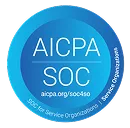
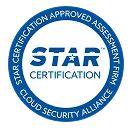
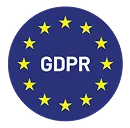









.webp)